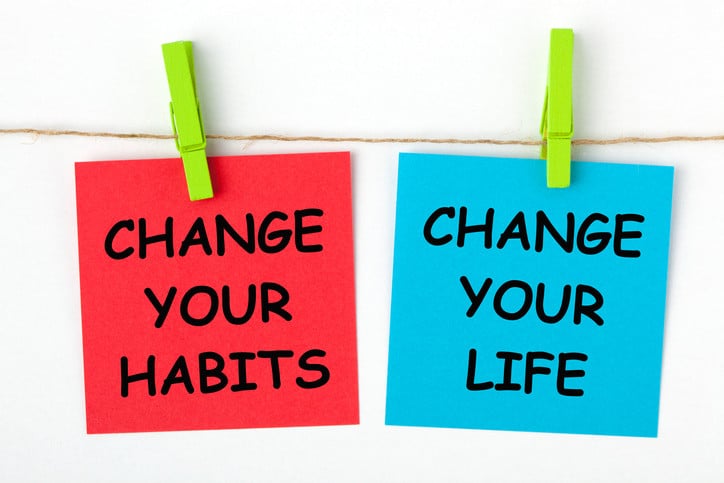Empower Yourself with Effective Strategies for Cultivating Healthy Habits with Wellspring Counselling Inc.
Creating new habits can be challenging, but with the proper support and strategies from Wellspring Counselling Inc., we can make lasting changes for personal growth and well-being.
This article will discuss practical methods for developing new counseling and personal growth habits. Research and insights from experts support these methods.
Understanding Habit Formation
Habits are automatic behaviors that we perform without much conscious thought. They are formed through repetition in response to specific cues and the following rewards.
When we engage in a behavior repeatedly, our brains form stronger connections associated with that action, making it more ingrained in our routine. This ingrained behavior becomes a habit, shaping our daily lives and influencing our actions.
The Power of Small Changes
Starting small and setting achievable goals is beneficial for developing new habits. As Fogg (2019) highlighted, the “Tiny Habits” concept emphasizes the significance of concentrating on small, manageable actions that can seamlessly integrate into our daily routines.
By making incremental changes and establishing a sturdy foundation for long-term growth, we enhance our likelihood of success in habit formation.
Strategies for Forming New Habits
- Set specific goals, like “walk for 30 minutes every day after work,” instead of saying “exercise more.”
- Understand why you do what you do and the advantages you get from it. This awareness can help you form new habits by swapping out your current routines with healthier ones while keeping the same triggers and benefits.
- Develop a step-by-step plan to incorporate your new habit into your daily routine. Consider potential obstacles and create strategies to overcome them (Gollwitzer, 1999).
- Share your habit goals with a supportive friend or family member. They can help you stay on track and encourage you (Carr, 2011).
- You can monitor your progress using a habit tracker, journal, or mobile app. Checking your progress regularly can help you stay motivated and make any necessary adjustments (Norcross et al., 2002).
- Forming new habits takes time and effort. Be patient with yourself and maintain a growth mindset. Setbacks are opportunities for learning and growth (Dweck, 2006).
Experiential Approaches to Habit Formation
- Mindfulness meditation: Practicing mindfulness meditation helps you become more aware of your thoughts, feelings, and behaviors. This can make recognizing and changing unhelpful habits easier (Shapiro et al., 2006).
- Visualization: Visualize yourself regularly practicing your new habit. This mental practice can help you stay motivated and determined to make a change (Holmes & Collins, 2001).
- Affirmations: Make positive statements about your habit goals and say them every day. Affirmations can help change negative beliefs and boost self-confidence, making it more likely for you to stick to your new habits (Bandura, 1997).
Develop new habits to improve yourself. It can be challenging, but it is worth it. Use good strategies and practical approaches to increase your chances of success and make lasting, positive changes in your life. Patience and persistence are essential. Setbacks allow for learning and growth.
Contact Wellspring Counselling Inc. to discover how we can help you build healthy habits and promote personal growth. Our services are designed to support your journey towards well-being and lasting change.
References
- Bandura, A. (1997). Self-efficacy: The exercise of control. W H Freeman/Times Books/ Henry Holt & Co.
- Carr, A. (2011). Positive psychology: The science of happiness and human strengths. Routledge.
- Duhigg, C. (2012). The power of habit: Why we do what we do in life and business. Random House.
- Dweck, C. S. (2006). Mindset: The new psychology of success. Random House.
- Fogg, B. J. (2019). Tiny habits: The small changes that change everything. Houghton Mifflin Harcourt.
- Gollwitzer, P. M. (1999). Implementation intentions: Strong effects of simple plans. American Psychologist, 54(7), 493-503.
- Holmes, P. S., & Collins, D. J. (2001). The PETTLEP approach to motor imagery: A functional equivalence model for sports psychologists. Journal of Applied Sport Psychology, 13(1), 60–83.
- Locke, E. A., & Latham, G. P. (2002). Building a practical theory of goal setting and task motivation: A 35-year odyssey. American Psychologist, 57(9), 705–717.
- Norcross, J. C., Mrykalo, M. S., & Blagys, M. D. (2002). Auld lang syne: Success predictors, change processes, and self-reported New Year’s resolvers and nonresolvers outcomes. Journal of Clinical Psychology, 58(4), 397-405.
- Shapiro, S. L., Carlson, L. E., Astin, J. A., & Freedman, B. (2006). Mechanisms of mindfulness. Journal of Clinical Psychology, 62(3), 373–386.





